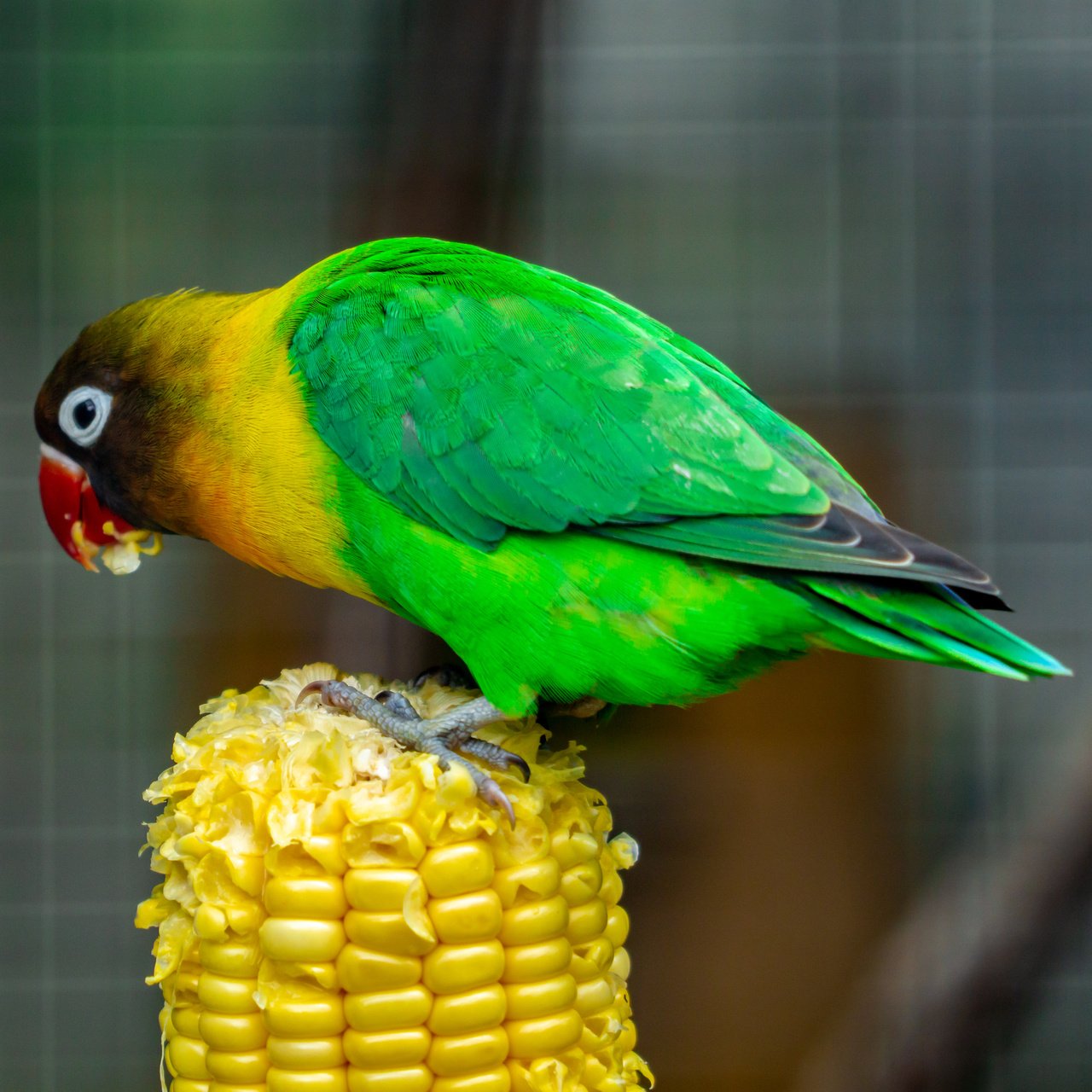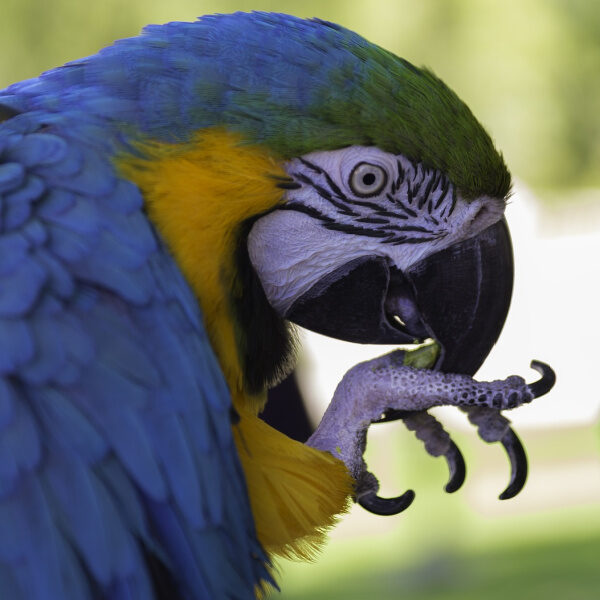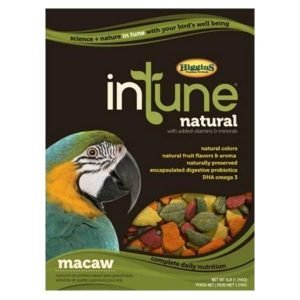Last Updated on by Mitch Rezman
You can read the post and comment here
Author: Michael M. Commented on the blog post and I responded
Comment:
As long as we’re talking diet, maybe you have a few suggestions to
Fine-tune Kula’s plate of fresh food, which she gets first thing every day.
It usually includes blueberries, strawberries, papaya, asparagus, red &
gold beets, celery, apple, green cabbage, carrots, mango, kale, bok
Choy, broccoli stalk (she doesn’t like the florets) and a few small
pieces of grass-finished beef, wild-caught salmon, or cheese.
Some fruits are seasonal like dragon fruit or poms. I’ll rotate spinach,
arugula, bell peppers, peas, green beans and yams.
I supplement her seed, L’Avian, which she’ll get later in the day with
a few whole nuts like hazelnuts, walnuts, pecans, and peanuts. Oh and
her fav pistachios.
Thoughts? She’s almost 20 and hasn’t been sick a day in her life.
Hi Michael,
I’m starting with a breakdown of the nutrition offered by each food your lucky bird is getting.
Here are the nutritional properties of the foods you listed, tailored for your cockatoo and general pet bird care:
Fruits
1. Blueberries
- Rich in: Vitamin C, Vitamin K, manganese, and antioxidants.
- Benefits: Supports immune health and reduces oxidative stress.
- Caution: Limit quantity due to natural sugar content.
2. Strawberries
- Rich in: Vitamin C, manganese, folate, and antioxidants.
- Benefits: Good for skin and tissue health.
- Caution: Wash thoroughly due to pesticide residue.
3. Papaya
- Rich in: Vitamin A, Vitamin C, folate, and fiber.
- Benefits: Aids digestion and boosts immune health.
- Caution: Avoid seeds as they may contain traces of toxins.
4. Apple (no seeds)
- Rich in: Vitamin C, fiber, and water.
- Benefits: Hydration and gut health.
- Caution: Avoid seeds—they contain cyanogenic glycosides.
5. Mango
- Rich in: Vitamin A, Vitamin C, Vitamin E, and fiber.
- Benefits: Supports vision, immunity, and skin health.
6. Dragon Fruit (Seasonal)
- Rich in: Vitamin C, magnesium, and antioxidants.
- Benefits: Aids hydration and digestion.
7. Pomegranates (Seasonal)
- Rich in: Vitamin C, Vitamin K, and antioxidants.
- Benefits: Supports heart health and reduces inflammation.
Vegetables
1. Asparagus
- Rich in: Vitamin K, Vitamin A, and folate.
- Benefits: Promotes bone health and digestion.
2. Beets (Red & Gold)
- Rich in: Folate, manganese, potassium, and nitrates.
- Benefits: Supports cardiovascular health.
3. Celery
- Rich in: Vitamin K, Vitamin C, and water.
- Benefits: Excellent for hydration and low in calories.
4. Green Cabbage
- Rich in: Vitamin K, Vitamin C, and fiber.
- Benefits: Supports digestion and tissue repair.
5. Carrots
- Rich in: Vitamin A (beta carotene), Vitamin K, and fiber.
- Benefits: Promotes vision and healthy skin.
6. Kale
- Rich in: Vitamin A, Vitamin K, Vitamin C, calcium, and iron.
- Benefits: Excellent for bone and feather health.
7. Bok Choy
- Rich in: Vitamin A, Vitamin C, calcium, and potassium.
- Benefits: Great for hydration and muscle function.
8. Broccoli Stalks (not florets)
- Rich in: Vitamin C, Vitamin A, and fiber.
- Benefits: Digestive health and antioxidants.
9. Spinach (Rotated)
- Rich in: Vitamin K, Vitamin A, folate, and iron.
- Caution: Contains oxalates, which may interfere with calcium absorption; rotate to prevent issues.
10. Arugula (Rotated)
- Rich in: Vitamin K, calcium, and potassium.
- Benefits: Supports bone and cardiovascular health.
11. Bell Peppers (Rotated)
- Rich in: Vitamin C, Vitamin A, and antioxidants.
- Benefits: Improves immunity and vision.
12. Peas (Rotated)
- Rich in: Vitamin C, protein, and fiber.
- Benefits: Supports muscle and digestive health.
13. Green Beans (Rotated)
- Rich in: Vitamin K, Vitamin C, and manganese.
- Benefits: Bone health and digestion.
14. Yams (Rotated)
- Rich in: Vitamin A, Vitamin B6, and fiber.
- Benefits: Energy and immune support.
Animal Proteins (Occasionally)
1. Grass-Finished Beef
- Rich in: Protein, iron, zinc, and Vitamin B12.
- Benefits: Muscle health and energy.
- Caution: Offer sparingly to avoid excess fat or cholesterol.
2. Wild-Caught Salmon
- Rich in: Omega-3 fatty acids, Vitamin D, and protein.
- Benefits: Supports brain and feather health.
- Caution: Ensure it’s fully cooked and boneless.
3. Cheese (Occasionally)
- Rich in: Calcium, Vitamin D, and fat.
- Caution: Birds are lactose-intolerant, so offer minimal amounts.
Nutritional Highlights of Rotational Feeding:
Rotating seasonal foods like dragon fruit, spinach, arugula, bell peppers, peas, green beans, and yams provides variety, prevents nutrient imbalances, and avoids dependency on any one food.
Some of the basic admonitions to bring forward:
Blueberries – Caution: Limit quantity due to natural sugar content.
Strawberries – Caution: Wash thoroughly due to pesticide residue.
Papaya Caution – Avoid seeds as they may contain traces of toxins.
Apples Caution – Avoid seeds—they contain cyanogenic glycosides.
That’s all common sense.
Anyone who knows me knows I’m a “data guy” at heart.
Data and facts guide me.
So when I see “Animal Proteins (Occasionally)” I see a red flag.
Your pet bird has roughly 6000 to 7000 feathers.
Those feathers are grown from amino acids which are derived from protein.
I don’t know if your bird is getting enough protein.
Do You have lighting over the cage?
If so or if not shine a bright light on your bird to determine if his or her feather radiates color or if the color seems “flat” – only you can tell.
A full blood workup with an avian vet would be helpful to ensure your nutritional strategy meets your bird’s requirements.
Best
MitchR
Author Profile
Latest entries
 Feeding Exotic BirdsDecember 29, 2025How to Switch or Convert Your Bird From Seeds to Pellets: Real-Life Case Studies and Practical Guidance
Feeding Exotic BirdsDecember 29, 2025How to Switch or Convert Your Bird From Seeds to Pellets: Real-Life Case Studies and Practical Guidance Feeding Exotic BirdsDecember 16, 2025A Practical, Budget-Smart Guide to Feeding Birds Well
Feeding Exotic BirdsDecember 16, 2025A Practical, Budget-Smart Guide to Feeding Birds Well Bird EnviornmentsDecember 7, 2025Understanding Budgie Cage Bar Orientation: Myths, Realities & Practical Solutions for Vertical-Bar Bird Cages
Bird EnviornmentsDecember 7, 2025Understanding Budgie Cage Bar Orientation: Myths, Realities & Practical Solutions for Vertical-Bar Bird Cages Feeding Exotic BirdsDecember 5, 2025How Dr. T.J. Lafeber Rewrote the Future of Pet Bird Nutrition
Feeding Exotic BirdsDecember 5, 2025How Dr. T.J. Lafeber Rewrote the Future of Pet Bird Nutrition




Michael Mattei
24 Jan 2025Thanx Mitch.
No problems with any of your red flags. So it’s good? BTW she’s a Scarlet. Of course she under a light, I’m in the PNW, overcast capital of the country.
When resupplying my bagged seed/nut combos from you, I usually p/u something new on top of the L’Avian.
TY for the decades of guidance, I firmly lay Kula’s excellent health at your feet Dude.